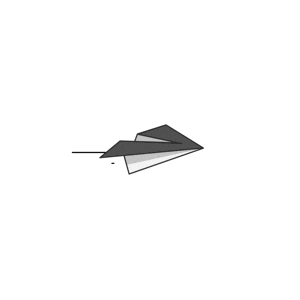Visa requirements for Latvia visa
By support@click2visas.com
5 years
IMMIGRATION AND VISAS
Passport Requirements:
All tourists are expected to have a passport, except as follows:
1. Travelers with a national identity card issued to Switzerland or European Economic Area member countries except Denmark, Iceland, Republic of Ireland, Norway, and Great Britain.
2. Travelers with ‘Kinderausweis,’ a German identity document issued to children.
3. Travelers with an identity document issued by Australia.
4. Travelers with a certificate of identity issued by Australia.
5. Travelers with a Seaman Book given that they are on duty traveling.
6. Travelers given by the United Nations with a ‘Laissez-Passer.’
7. Travelers with a ‘Laissez-Passer’ issued by the European Commission.
8. Travelers with identification documents issued to people without nationality or citizenship.
9. Travelers with travel documents known as ‘Titre de Voyage’ issued by Georgia, Iceland, Liechtenstein, Norway, or Switzerland to refugees according to the Geneva Convention of 1951.
10. Travelers with travel documents and residence permits issued by a European Union member country, except for the Republic of Ireland and Great Britain, to refugees or people without nationality or citizenship.

Document Validity:
Passports and alternate certificates, or any of them, must be valid for up to 6 three months after the scheduled visit.
a. Citizens of Latvia can enter valid passports or alternative documents upon arrival.
b. Citizens of the countries within the European Economic Area may receive passports legitimate upon arrival.
c. With travel documents valid on arrival, residents of Latvia can arrive.
Additional Information:
Students living in a member country of the European Union and planning to travel as part of a school community from within the European Union, aside from their nationality, do not require a visa, except that:
- Their names are stated on a ‘List of Travelers’ stamped by the school and certified by the concerned authority in their home country;
- The school party is followed by one of the school’s teachers;
- This ‘List of Travelers’ must contain a photo of the student.
Not all European Union member countries issue this type of ‘List of Travelers’. Besides, the exception would NOT extend to the ‘List of Passengers’ stamped only by the school without pictures.
Minors:
Infants must move with their passports into or out of Latvia.
Visa Issuance:
Before arrival: Travelers are kindly requested to contact the nearest representation of Latvia.
Visa Exemptions:
All travelers must hold a visa except the following:
1. Citizens of Latvia.
2. Citizens of Austria, Bulgaria, Czech Republic, Estonia, Germany, Hungary, Italy, Lithuania, Belgium, Luxembourg, Cyprus, Malta, Denmark, Netherlands, Finland, Norway, Sweden, France, Poland, Greece, Portugal, Iceland, Romania, Spain, Republic of Ireland, Slovak Republic, Liechtenstein, Slovenia, and Switzerland.
3. Travelers with British passports endorsed ‘British Citizen.’
4. Travelers staying for no more than 90 days in a half-year period provided they are:
Residents of Andorra, Antigua and Barbuda, Argentina, Barbados, Mexico, Bahamas, Brazil, Brunei, Chile, Costa Rica, Croatia, El Salvador, Guatemala, Honduras, Israel, Japan, Korea, Malaysia, Mauritius, Monaco, New Zealand, Nicaragua, Panama, Paraguay, San Marino, Seychelles, Australia, Singapore, St. Kitts-Nevis, Uruguay, Canada, Vatican City, Venezuela, USA;
Travelers with British passports endorsed ‘British Nationals (Overseas)’;
Travelers with British passports endorsed: British Overseas Territories Citizen’ that contain the label ‘right of residence’ issued by Great Britain; or ‘British Subject,’ which also contain the label ‘right of residence’ issued by Great Britain;
Citizens of the People’s Republic of China have passports issued by Hong Kong (China’s Special Administrative Region) and Macau (China’s Special Administrative Region);
Travelers with diplomatic, unusual, or service passports provided they are citizens of Turkey;
Travelers with diplomatic, unusual, or service passports provided they are citizens of Georgia, Peru, and Ukraine;
Travelers with diplomatic, unusual, or service passports provided they are citizens of Albania, Bosnia Herzegovina, Former Yugoslav Republic of Macedonia, Republic of Moldova, Republic of Montenegro, and Russia;
‘Laissez-Passer’ travelers issued by the European Commission;
Travelers issued by the United Nations with ‘Laissez-Passer;
Travelers with travel documents and residence permits issued by a European Union member country, except for the Republic of Ireland and Great Britain, recognized refugees and people without nationality or citizenship.
Travelers with ‘Titre de Voyage’ travel documents issued to refugees by Iceland or Norway in accordance with the 1951 Geneva Convention.
5. Armenian citizens with diplomatic, official, or service passports.
6. International residents of Latvia whose residency permits are temporary or permanent.
7. Travelers, irrespective of nationality, with a ‘family member’ residence permit issued by a Member State of the European Union to a member of the family who is a citizen of a Member State of the European Economic Area or a citizen of Switzerland, provided they are traveling with or traveling to a citizen of a Member State of the European Economic Area or a citizen of Switzerland.
8. Travelers, regardless of nationality, with residence permits issued by Monaco or by one of the Schengen States.
9. Travelers, irrespective of nationality, who live in Lichtenstein for no longer than five days and have evidence of their residency provided that they are in transit through the Schengen area and begin their journey to a country outside the Schengen area, rather than employing transport.
TWOV (Transit Without Visa):
TWOV is permissible for travelers continuing their trip to a third country without leaving the airport transit area provided:
- Arrive and leave for non-Schengen countries;
- Onward tickets have been confirmed; and
- Individuals have all the paperwork for their next ride required.
a. Exception:
Individuals of Afghanistan, Congo (Kinshasa), Ghana, Eritrea, Bangladesh, Ethiopia, Iran, Nigeria, Pakistan, Iraq, Somalia, and Sri Lanka must have a transit visa.
Additional Information:
1. Students, rather than their ethnicity, living in a Member State of the European Union and traveling as part of a school community within the European Union, do not require a visa on the condition that:
– Their names are stated on a ‘List of Travelers’ stamped by the school and certified by the concerned authority in their home country;
– One of the teachers at that school accompanies the school group;
N.B.
Unless the ‘List of Passengers’ is only stamped by the school and is not approved by the body concerned or includes pictures of the students, each student must bear his or her travel document and evidence of residence.
2. Only when included in a valid passport are valid visas accepted.
Warnings:
Travelers who do not respect entry or transit regulations will be deported to the country of departure. The traveler will have to pay a fine ranging between LVL 10 (about USD 20) and LVL 250 (about USD 500), and A fine of LVL 1,700 (about USD 3,400) and LVL 2,800 (about USD 5,600) would need to be charged by the carrier.
CUSTOMS AND FOREIGN EXCHANGE
Import regulations:
1. Travelers arriving with goods bought within the European Union for personal use only are allowed free import of:
a. Tobacco products: 800 cigarettes; 400 cigarillos each weighing no more than three grams; 200 cigars; one kilogram of smoking tobacco;
b. Alcoholic drinks: 10 liters of alcoholic drinks over 22%; 20 liters of alcoholic drinks less than 22%; 90 liters of wine but no more than 60 liters of sparkling wine; 110 liters of beer.
2. Travelers arriving from non-European Union countries including the Aland Islands, Canary Islands, Channel Islands, and other similar regions are allowed free import of:
a. Travelers aged 17 years old and more are allowed 200 cigarettes; 100 cigarillos each weighing no more than three grams; 50 cigars; 250 grams of smoking tobacco; or a proportional mixture of these products;
b. Travelers aged 17 years old and more are allowed one liter of alcoholic drinks over 22% volume; non-denatured ethyl alcohol with more than 80% volume; two liters of alcoholic drinks or aperitifs made of wine or similar drinks less than 22% volume; sparkling wines or liqueur wines; or a balanced mixture of these products, in addition to four liters of still wine; and 16 liters of beer; Free import allowances shall apply only to one entry within 48 hours. If an individual arrives more than one time within a 48-hour cycle and uses those allowances at first arrival, customs duties may have to be paid.
c. Sufficient medical products for personal use only;
d. Air travelers are allowed other goods up to a total value of EUR 430 per traveler.
3. Prohibited Goods:
Animal products not originating in a Member State of the European Union, Andorra, Liechtenstein, Norway, San Marino, or Switzerland cannot be imported into Europe, excluding limited quantities. Andorra, Croatia, the Faeroe Islands, Greenland, Iceland, and small quantities of certain goods from other countries, the Member State of the Union is a member country. For further details, please check the website of the European Union: http://europa.eu/.
Export regulations:
Prohibited Goods include:
- Narcotics; and
- Guns, unless the traveler has permission from the Latvian Police department.
Crew members customs regulations:
The same regulations apply to crew members as to ordinary travelers.
Pets:
Dogs and cats are subject to special regulations (European commission No 998 of 2003) of the E.U. parliament and the European Council. For further information, please contact the nearest embassy in Latvia.
Baggage Clearance regulations:
A traveler’s luggage should be cleared at the first airport of entry in Latvia.
a. Exemption:
Luggage of transit travelers whose destination is outside of Latvia provided it is labeled to that destination.
Airport tax:
Travelers are not required to pay any airport tax upon their departure from the airport.
Currency Import regulations:
The same laws apply as those for export.
Currency Export regulations:
There are no restrictions on exporting local currency (Latvian Lat-LVL) and foreign currencies for travelers arriving from or traveling to a country within the European Union. As far as travelers arriving directly from or traveling to a country outside the European Union are concerned, amounts higher than or equivalent to EUR 10,000 must be declared in another money, including banker’s draft and cheques of any sort.
Additional information on regulations:
Pieces of art older than 50 years of age need approval from the Latvian authority.
Veterinarian documents must accompany.
Arms and Ammunition regulations:
Guns are permitted only if the traveler has import permission from the Latvian Police department.




